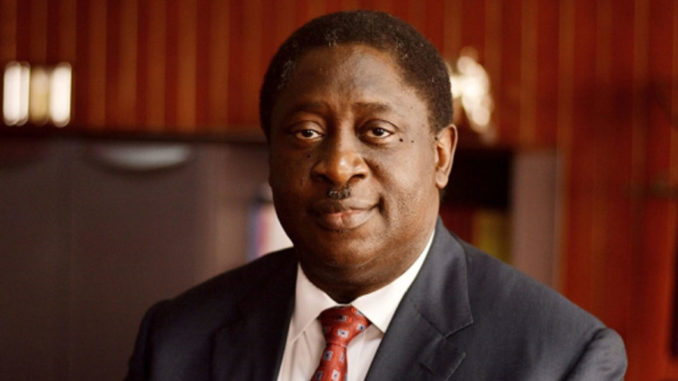
Lalekan Are, Banwo Smith and Kolade Mosuro
The Tribune in its March 25th edition wrote an editorial piece denouncing Wale Babalakin, for according to the newspaper, “denigrating free education”. Sadly, the Tribune missed the crux of Babalakin’s remarks and tangentially criticised him. We write to set the records straight.
The matter all arose at the book launch of Chief Abudu’s biography, “Sowing the Industrial Mustard Seed.” At the book launch, Babalakin pointed out that the government’s free education policy embarked on in Oyo State from 1979 did not put in adequate resources in its secondary schools scheme for quality results of the students. He gave the example of Government College Ibadan and the decline of the school since 1979 compared to its past records. He expressed a personal preference for quality education
What Chief Obafemi Awolowo and his government did for Western Region remains ever laudable. Awolowo was incisive, creative and frugal. He extended free education to all children of school-going age, essentially primary schools. It was not that he did not recognise the necessity of covering secondary schools; he was, as a start, limited to operating within his means and so the free education campaign was limited to primary schools and an enlightenment of adult illiterates. For secondary schools, he offered support by providing matching funds to communities or organisations that could fund and meet the criteria of owning schools. His government did not claim the ownership of ALL secondary schools.
From mid-1979, the Government of Oyo State took over the ownership of ALL schools, both primary and secondary schools, declaring an open admission policy and denouncing the boarding house system for secondary schools. Government College Ibadan (GCI) is a test example for critical analysis. Its ownership, the government, has never changed since its inception from 1929. The performance of its students however, as Babalakin pointed out, has steeply fallen since 1979. This is because government ownership of all schools has stretched government’s resources and they have been unable to provide continuous investment in the upkeep of the school; investment to include the commensurate number of quality teachers to meet the school population. Lately, the Ajimobi government introduced a School Governing Board to guide and manage schools. Yet, with continual lack of teachers and resources, the GCI continues to falter. We stand by the available records of its poor academic performance. The government to have banned boarding school was to deny the students of additional education through communal living and responsibilities, and focused study. To have banned the boarding house system was to destroy the culture of the institution and most schools have yet to get over this.
Babalakin did not go outside his scope. He spoke valiantly and knowledgeably about his secondary school, Government College, Ibadan and said its standard fell from 1979 and it has not recovered. That is an irrefutable fact.
There is a quantifiable cost to the running of education in whatever garb we may choose to call it, be it free education, free universal education etc. The state can choose to bear the full cost, transfer the cost or share the cost of education. When costs are not met, something will give, often the quality of performance. That is the crux of Babalakin’s argument. When quality is sacrificed, the employer or the tertiary institutions will not admit students on the freedom of their secondary education, but on the merit of their performance. When Oyo State is hailed for trail-blazing, this is done in celebration of intellect. Certainly, for Oyo State now to record a 26th position out of the states of the federation in the 2018 WASC examinations is no trail-blazing. The answer in our view lies in the provision of more teachers, resources to back them up, welfare care for the teachers, and the encouragement of the boarding house system that will allow the students rigorous additional education after day class.
The educational policy of our state should not be cast in concrete. We must constantly visit it, debate it so that we can aim to steadily improve on it. That debate should hold in any and all available spaces without bar or hindrance. We need a free education scheme for the emancipation, rapid and massive development of our society. There must be a political and robust will to creatively plough adequate resources into it to achieve excellence. When we see hordes of people gain access to education, that’s obviously the impact of government at play; and when we see many students with distinctive education, that’s the obvious impact of good governance. Education, not mere schooling, is the answer to every facet of our societal problems. The best value for government’s investment in education is success and productivity of the citizens.
Lalekan Are, Banwo Smith and Kolade Mosuro are Trustees of Government College Ibadan Old Boys Association (GCIOBA).
END

Be the first to comment